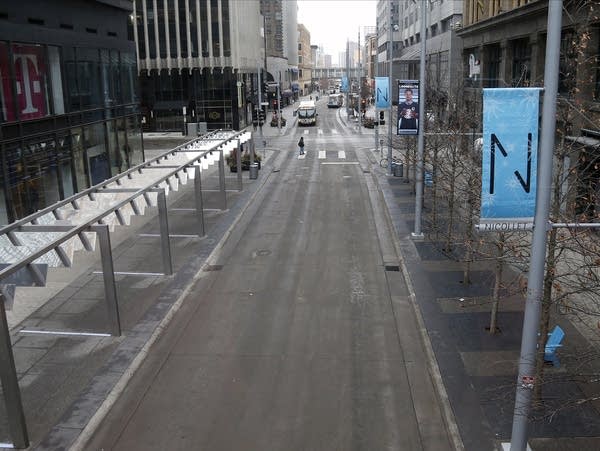COVID-19 in Minnesota: 77 cases statewide; 1,700 samples await testing amid shortage

The popular Nicollet Mall during the lunch hour is almost deserted in downtown Minneapolis Wednesday. As a result of the coronavirus, many retailers are closing or cutting back hours. For most people, the new coronavirus causes only mild or moderate symptoms. For some, it can cause more severe illness.
Jim Mone | AP Photo
Go Deeper.
Create an account or log in to save stories.
Like this?
Thanks for liking this story! We have added it to a list of your favorite stories.


